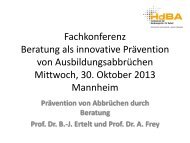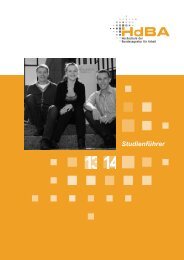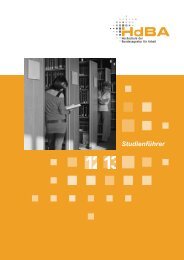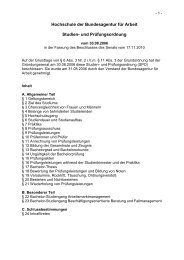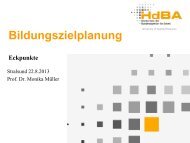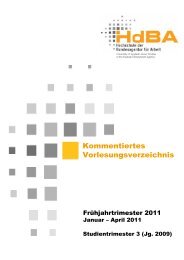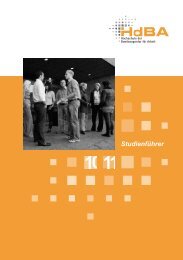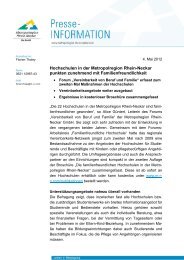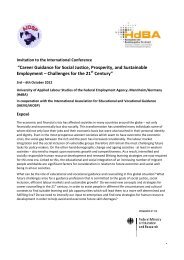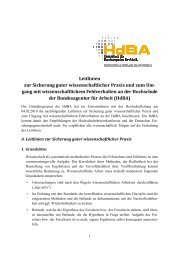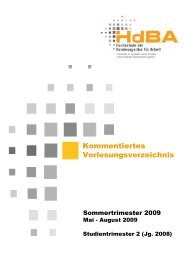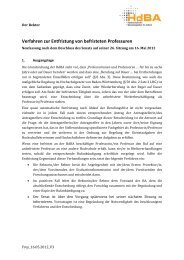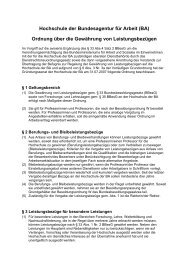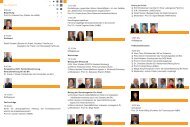Brain Drain - Hochschule der Bundesagentur für Arbeit
Brain Drain - Hochschule der Bundesagentur für Arbeit
Brain Drain - Hochschule der Bundesagentur für Arbeit
You also want an ePaper? Increase the reach of your titles
YUMPU automatically turns print PDFs into web optimized ePapers that Google loves.
���������������������������������������������������<br />
���������������������������������������<br />
�<br />
�<br />
• Interviews<br />
Questions are included purposefully in or<strong>der</strong> to define areas, activities, etc. In<br />
which the client is interested to develop themself and also to check the information<br />
collected by using other methodologies. Applying the interview BD – BG<br />
counsellors may evaluate areas such as cultural and behavioural competence for<br />
professional life in the country from which the client comes from or to which they<br />
are going as well as stereotypes and prejudices that may be manifested in the new<br />
cultural environment.<br />
It is important to point out that career development depends not only on the certain<br />
professional interests and values. It is significantly influenced by personal, family,<br />
religious, economic and political interests and values. BD – BG counsellors should<br />
take into account their influence in the client’s assessment. The most suitable<br />
methods are the informal ones – specially designed questionnaires and interviews.<br />
Exploring these additional interests and values BD – BG counsellors will touch the<br />
client’s beliefs relating to starting a new job in a new cultural environment. For<br />
example a client from India wants to start a new job in Great Britain because he<br />
thinks that he will earn much more money there. His career development is<br />
influenced by economic interests. Similar situations will put the BD – BG counsellor in<br />
a position to assess the reliability of the client’s information and update it if<br />
necessary.<br />
3.6 Unit 5: Ability Measurement Tests<br />
Ability tests are recognised as the single best method of predicting job success.<br />
Ability tests measure a person’s potential, for instance to learn the skills needed for a<br />
new job or to cope with the demands of a training course, to assess potential<br />
candidates in terms of their overall intellectual potential and build a profile of their<br />
individual strengths and weaknesses. Ability tests are prospective: they focus on<br />
what the person is capable of achieving in the future or their potential to learn.<br />
There is a body of research to suggest that cognitive ability testing is the most robust<br />
predictor of job performance and that the validity of this predictor rises as the<br />
complexity of the job rises.<br />
The main types of ability test used are:<br />
• Tests of General or Global Ability (also called "g", intelligence, IQ)<br />
• Tests of Specific Cognitive abilities (Abstract Reasoning, Verbal Reasoning,<br />
Numerical Reasoning)<br />
• Tests of Psychomotor abilities and specific aptitudes (vision, hearing, motor<br />
dexterity, artistic ability, mechanical ability, management potential, lea<strong>der</strong>ship<br />
potential etc.)<br />
145



